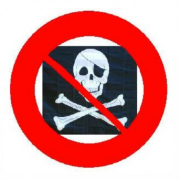Hollow Victory: Enola Bean Patent Smashed At Last (Maybe)
Submitted by ETC Staff on
The infamous Enola bean patent, first denounced by ETC Group eight years ago as a textbook case of biopiracy, was struck down yesterday (April 29, 2008) by the U.S. Patent & Trademark Office in Washington, D.C. One of the most controversial plant patents in history, the effort to defeat it was unprecedented because it involved the United Nations and international plant breeding institutes.
Victoria hueca: Patente sobre el frijol Enola anulada finalmente (esperemos...)
Submitted by ETC Staff on
La infame patente del frijol Enola, denunciada por primera vez por el Grupo ETC hace ocho años como un cínico ejemplo de biopiratería, fue anulada el 29 de abril del 2008 por la Oficina de Patentes y Marcas Registradas de Estados Unidos. Siendo una de las patentes sobre plantas más controvertidas de la historia, su derrota no tiene precedentes, pues involucró a naciones tanto como a organizaciones de la sociedad civil e instituciones internacionales de fitomejoramiento.
Ahoy, Mates!
Submitted by ETC Staff on
What's the most scandalous case of biopiracy[1] in your country? Who's ripping off indigenous knowledge in your community? Which privateer is most egregiously pillaging the global commons for profit? Who's monopolizing your genes or patenting your plants?
Nominate your least favorite pirate for a 2008 Captain Hook Award. All outrageous achievements in biopiracy deserve recognition!
Nominate your most admired biopiracy-resistor for a 2008 Cog Award. All those who have fought off biopirates, defeated predatory patents or otherwise foiled the nefarious plots of fiendish privateers deserve recognition. (Cog Awards are so-named because cogs were ships designed to repel pirate attacks.)
¡Alerta, colegas!
Submitted by ETC Staff on
¿Cuál es el caso más escandaloso de biopiratería en su país? ¿quién saquea el conocimiento indígena en su comunidad? ¿Quién privatiza descaradamente los bienes comunes para lograr ganancias privadas? ¿Quién monopoliza sus genes o patenta sus cultivos?
Nomine a su pirata más odiado para los Premios Capitán Garfio 2008. ¡Necesitamos conocer los peores casos de biopiratería!
El Instituto Venter construye la secuencia más larga de ADN artificial (que no funciona)
Submitted by ETC Staff on
El Grupo ETC renovó su demanda de una moratoria a la liberación y comercialización de organismos artificiales, enfatizando que no hay regulación ni debate social en torno a la biología sintética. La insistencia en la moratoria ocurre en el contexto del anuncio que hiciera el equipo de investigación de J. Craig Venter, de haber logrado sintetizar artificialmente un genoma del tamaño del de una bacteria, utilizando secuencias de ADN ordenadas por correo.

